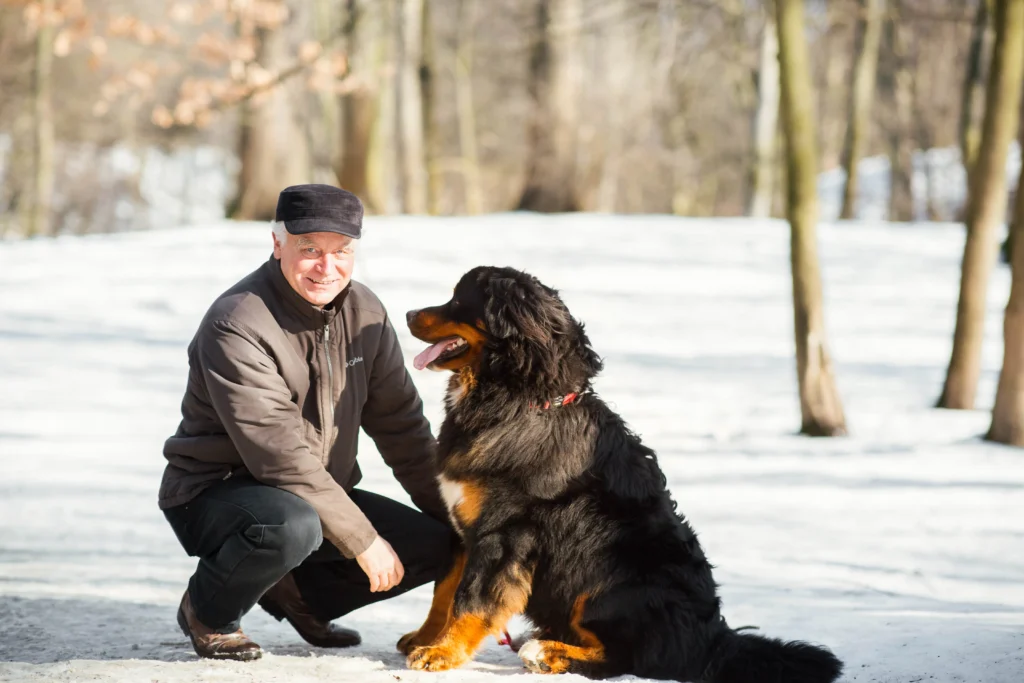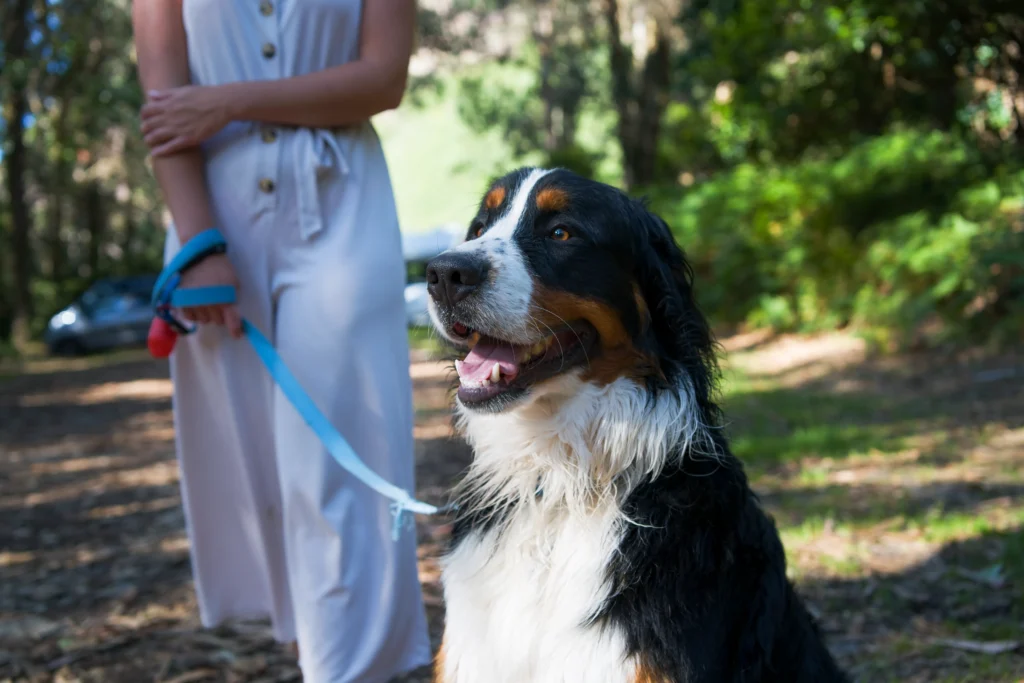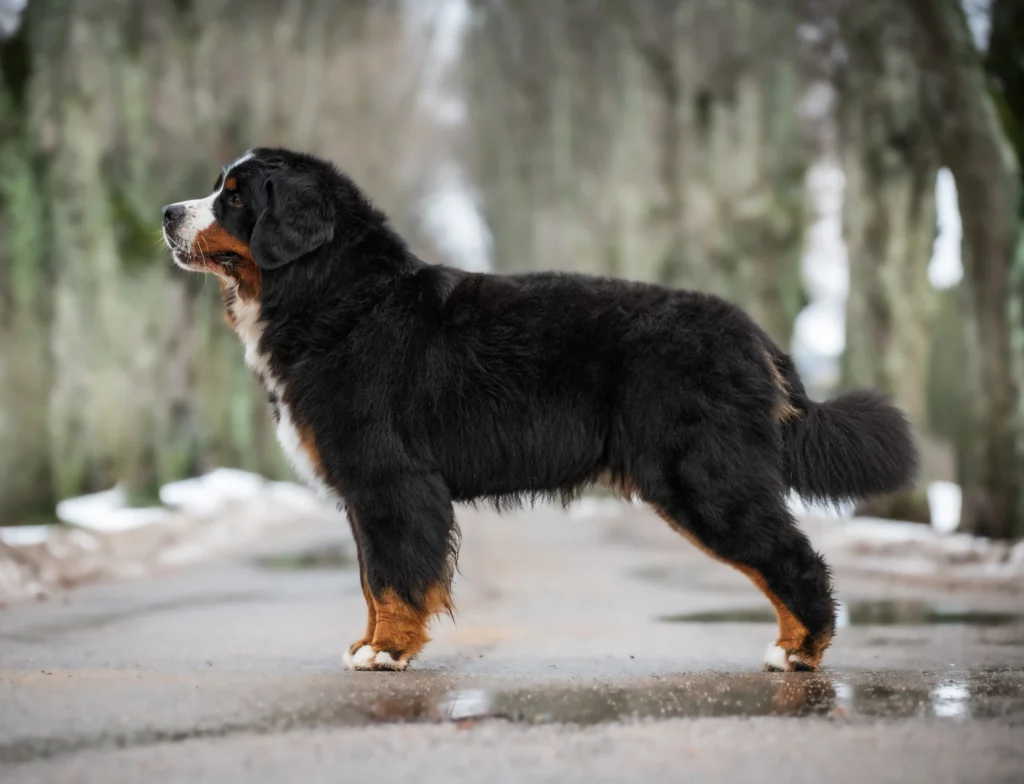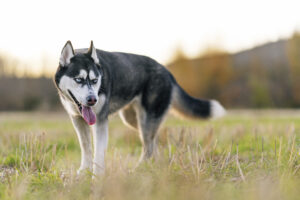Introduction
Are you considering bringing a Bernese Mountain Dog into your family? These magnificent, gentle giants with their striking tri-colored coats have captured the hearts of dog lovers across the United States. Whether you’re looking for a Bernese Mountain Dog for adoption through a rescue organization or considering a puppy from a reputable breeder, proper preparation is essential.
The journey to adopt a Bernese Mountain Dog is filled with excitement, but also potential pitfalls that many prospective owners overlook. At PetsPump, we believe that successful adoption starts with education. Understanding what to avoid when searching for a Bernese Mountain Dog for adoption can make all the difference between a smooth transition and a challenging experience.
In this comprehensive guide, we’ll explore seven critical mistakes to avoid when adopting a Bernese Mountain Dog and provide expert advice on making the adoption process successful. Whether you’re searching for a Bernese Mountain Dog rescue near me or looking to adopt Bernese Mountain Dog puppies, this article will help you navigate the path to responsible ownership.
Mistake #1: Not Understanding the Breed’s Specific Needs

Many people fall in love with the Bernese Mountain Dog’s beautiful appearance without fully understanding what ownership entails. These working dogs have specific needs that potential adopters must be prepared to meet.
The True Nature of Bernese Mountain Dogs
Originally bred as farm dogs in Switzerland, Bernese Mountain Dogs are working breeds with natural instincts for pulling carts, herding livestock, and serving as loyal companions. When you adopt a Bernese Mountain Dog, you’re bringing home a dog with:
- High exercise requirements (1-2 hours daily)
- Strong need for human companionship
- Intelligence that requires mental stimulation
- A thick double coat that sheds heavily twice a year
- Size requirements (adults weigh 70-115 pounds)
Unfortunately, many Bernese Mountain Dogs end up in rescue situations when owners aren’t prepared for these realities. Before visiting a Bernese Mountain Dog adoption center, research the breed thoroughly to ensure it matches your lifestyle.
Health Considerations
Bernese Mountain Dogs have one of the shortest lifespans among dog breeds (6-8 years on average) and are prone to several health conditions:
- Hip and elbow dysplasia
- Cancer (particularly histiocytic sarcoma)
- Bloat
- Von Willebrand’s Disease
- Progressive Retinal Atrophy
When adopting from a Bernese Mountain Dog shelter or rescue, ask about any known medical history. For Bernese Mountain Dog puppies for adoption, inquire about health testing of the parents.
“Understanding a Bernese Mountain Dog’s needs before adoption is crucial for both the dog’s wellbeing and your satisfaction as an owner.” – American Kennel Club
Mistake #2: Rushing the Adoption Process

The excitement of bringing home a new four-legged family member can sometimes lead to hasty decisions. However, rushing to adopt Bernese Mountain Dog companions without proper consideration can lead to unfortunate outcomes.
Taking Time for Research
Before you search for a Bernese Mountain Dog for adoption near me, consider:
- Are you ready for a 6-8 year commitment?
- Can your home accommodate a large breed dog?
- Is your lifestyle compatible with this breed’s needs?
- Are you financially prepared for potential health issues?
- Do you have time for the exercise and grooming requirements?
Many Bernese Mountain Dog rehoming situations occur because owners didn’t fully consider these factors beforehand.
The Application Process
Reputable Bernese Mountain Dog rescue organizations and shelters have thorough application processes that may include:
- Detailed questionnaires
- Home visits
- Reference checks
- Meet-and-greets with the dog
- Waiting periods
While it might be tempting to look for Bernese Mountain Dog free adoption opportunities to bypass these steps, these processes exist to ensure the best match between dog and adopter.
As the Bernese Mountain Dog Club of America states: “A good rescue program will be as concerned about screening potential adopters as they are about rehabilitating and caring for the dogs.”
Mistake #3: Not Verifying the Legitimacy of Adoption Sources
With the popularity of the Bernese Mountain Dog for adoption rising across the United States, unethical operations have unfortunately emerged. Avoiding disreputable sources is crucial for both ethical and practical reasons.
Red Flags When Searching for a Bernese Mountain Dog for Adoption
When searching online for a Bernese Mountain Dog available for adoption, be wary of:
- Websites offering Bernese Mountain Dog for adoption online with minimal screening
- Extremely low adoption fees compared to legitimate rescues
- Lack of medical records or unknown medical history
- No contract or adoption agreement
- Unwillingness to answer questions about the dog’s background
- Pressure to make quick decisions

Legitimate Adoption Sources
Instead, focus your search on these reputable channels:
- Breed-Specific Rescues: Organizations like BARC (Bernese Mountain Dog Rescue) specialize in Bernese Mountain Dog rescue and understand the breed’s specific needs.
- General Animal Shelters: Some Bernese Mountain Dog for adoption opportunities come through general shelters. Check Petfinder or visit local shelters to find Bernese Mountain Dog Petfinder listings.
- Breed Clubs: The Bernese Mountain Dog Club of America maintains a network of regional clubs that can direct you to legitimate Bernese Mountain Dog adoption agencies.
- Reputable Breeders: Some ethical breeders also assist with Bernese Mountain Dog rehoming for adult dogs or returned puppies.
“Finding a Bernese Mountain Dog for adoption through legitimate channels not only ensures you’re getting a healthier dog but also that you’re not inadvertently supporting puppy mills or irresponsible breeding,” notes the Humane Society of the United States.
Mistake #4: Overlooking Adult Dogs in Favor of Puppies
Many adopters immediately search for Bernese Mountain Dog puppies for adoption without considering the advantages of adopting an older dog. This oversight can mean missing out on wonderful companions.
Benefits of Adopting an Adult Bernese Mountain Dog
When you choose an adult Bernese Mountain Dog for adoption, you often gain:
- Established temperament and personality
- Basic training already completed
- Lower energy levels (good for less active households)
- Immediate companionship without the puppy challenges
- The satisfaction of giving a second chance to a deserving dog
Many adult dogs in Bernese Mountain Dog rescue near me situations are there through no fault of their own. Owner relocations, family changes, or financial hardships often lead to Bernese Mountain Dog rehoming needs.
Special Considerations for Senior Berners
Senior Bernese Mountain Dogs for adoption (generally 5+ years) can make wonderful companions but may require:
- More frequent veterinary care
- Medication for chronic conditions
- Accommodations for mobility issues
- Special diets
While these needs exist, the deep bond formed with a senior Bernese Mountain Dog for adoption can be incredibly rewarding. Their gratitude and gentle companionship often make any extra care worthwhile.
If you’re set on a younger dog, consider Bernese Mountain Dog mix for adoption options. These mixed-breed dogs often have the wonderful Bernese temperament with potentially fewer health concerns.
Mistake #5: Failing to Prepare Your Home and Family

Bringing home a Bernese Mountain Dog for adoption without proper preparation can create unnecessary stress for both the dog and your household.
Home Preparations
Before heading to a Bernese Mountain Dog shelter or meeting with a rescue, prepare your home by:
- Setting up a quiet space with a large, sturdy dog bed
- Securing fencing (minimum 5-6 feet tall)
- Removing toxic plants and hazardous items
- Purchasing appropriately sized supplies (large breed specific)
- Installing baby gates if needed for restricted areas
- Choosing appropriate flooring (non-slip surfaces help prevent injuries)
Remember that when you adopt a Bernese Mountain Dog, you’re bringing home a large breed that can accidentally knock things over with their tail or movement. Secure breakables and create pathways wide enough for comfortable navigation.
Family Preparation
Family readiness is equally important when you adopt Bernese Mountain Dog companions:
- Educate all family members about proper handling and training
- Establish consistent rules for the dog
- Assign responsibilities for feeding, exercise, and grooming
- Plan for introductions to existing pets (slow and controlled)
- Discuss expectations regarding the dog’s role in the family
For families with children, supervision is essential, especially initially. While Berners generally love children, their size can be overwhelming for small kids.
“Preparedness is key to a successful transition when bringing home a Bernese Mountain Dog for adoption. The more you prepare before the adoption, the smoother the integration will be,” advises veterinary behaviorist Dr. Karen Overall.
Mistake #6: Underestimating the Financial Commitment
The true cost of bringing a Bernese Mountain Dog for adoption into your home extends far beyond the initial adoption fee. Financial unpreparedness is a common reason these dogs end up needing Bernese Mountain Dog rehoming.
Adoption Costs
Initial costs vary depending on the source:
- Bernese Mountain Dog rescue: $300-600 adoption fee
- Adopt Bernese Mountain Dog puppy from a breeder: $1,500-3,500
- Bernese Mountain Dog shelter: $150-400 adoption fee
While searching for a Bernese Mountain Dog free adoption might seem appealing financially, legitimate rescues charge fees to cover medical care, spaying/neutering, microchipping, and other necessary services.
Ongoing Expenses
The lifetime cost of caring for a Bernese Mountain Dog for adoption includes:
- Food: $60-100 monthly for quality large-breed food
- Preventative veterinary care: $500-800 annually
- Emergency fund: Recommend $1,500-3,000 set aside
- Grooming: $50-100 per professional session (every 6-8 weeks)
- Training: $100-300 for basic classes
- Pet insurance: $50-100 monthly (highly recommended)
- Supplies: Beds, toys, leashes, collars need regular replacement
As the Bernese Mountain Dog Club of America notes, “The purchase price or adoption fee is just the beginning. These dogs require significant financial resources throughout their lives, especially considering potential health issues.”
Mistake #7: Lacking a Support Network and Educational Resources
Successfully integrating a Bernese Mountain Dog for adoption into your home requires ongoing education and support. Many new owners underestimate this aspect.
Building Your Support Network
When you adopt a Bernese Mountain Dog, connect with:
- Local Bernese Mountain Dog clubs
- Online breed-specific forums and social media groups
- Your veterinarian (preferably one experienced with the breed)
- Professional trainers familiar with large working breeds
- Other Bernese owners in your area
These resources become invaluable when facing breed-specific challenges or health concerns.
Continuing Education
Learning shouldn’t stop once you adopt Bernese Mountain Dog companions. Ongoing education helps you provide the best care:
- Read books specific to Bernese Mountain Dogs
- Subscribe to breed publications
- Attend workshops on large breed care
- Follow Bernese Mountain Dog adoption USA resources
- Consider working with a certified dog trainer
When you adopt a Bernese Mountain Dog, you’re committing to understanding and meeting their needs throughout their life. Connecting with the Bernese Mountain Dog adoption center or rescue group that placed your dog can provide ongoing support specific to your dog’s background.
Where to Adopt a Bernese Mountain Dog: Finding Legitimate Resources
Now that you understand the common mistakes to avoid, let’s explore where to adopt a Bernese Mountain Dog responsibly.
Breed-Specific Rescues
Dedicated to the breed, these organizations offer advantages when seeking a Bernese Mountain Dog for adoption:
- BARC (Bernese Mountain Dog Rescue)
- Bernese Mountain Dog Club of America Rescue
- Regional Bernese Mountain Dog clubs with rescue programs
These organizations understand the breed’s specific needs and often provide excellent post-adoption support.
General Animal Shelters and Online Resources
While less common, Bernese Mountain Dog for adoption opportunities do arise in general shelters:
- Local animal shelters and humane societies
- Petfinder.com (Bernese Mountain Dog Petfinder searches)
- Adopt-a-Pet.com
- Rescue Me!
When using these resources to find a Bernese Mountain Dog available for adoption, be prepared to check frequently and act quickly, as these dogs are often adopted rapidly.
Reputable Breeders with Rehoming Programs
Some ethical breeders maintain Bernese Mountain Dog rehoming programs for:
- Adult dogs retired from breeding programs
- Show dogs transitioning to pet homes
- Returned puppies when original placements don’t work out
The Bernese Mountain Dog Club of America maintains a list of ethical breeders who occasionally have adult dogs available.
The Adoption Process: What to Expect
Understanding the typical process when seeking a Bernese Mountain Dog for adoption helps set realistic expectations.
Application and Screening
Most legitimate sources for a Bernese Mountain Dog for adoption require:
- Completion of a detailed application
- Personal references
- Veterinary references (if you’ve had pets)
- Home check or virtual tour of your living space
- Meet-and-greet with all family members
This thoroughness ensures suitable matches between dogs and adopters.
Meeting Potential Matches
When meeting a potential Bernese Mountain Dog for adoption:
- Observe the dog’s temperament in different situations
- Ask detailed questions about medical history and behavior
- Consider energy level and compatibility with your lifestyle
- Spend one-on-one time if possible
- Introduce to existing pets when appropriate
For those seeking Bernese Mountain Dog puppies for adoption, additional considerations include assessing temperament testing results and observing the puppy’s interactions with littermates when possible.
Post-Adoption Support
After bringing home your Bernese Mountain Dog for adoption, quality rescues provide:
- Transition guidance
- Training resources
- Medical history documentation
- Follow-up check-ins
- Community connections with other adopters
This support is invaluable, especially for first-time owners of the breed.
Special Considerations for Different Life Stages
Your expectations should vary depending on whether you’re adopting a puppy, adult, or senior Bernese Mountain Dog for adoption.
Puppies (Under 1 Year)
Bernese Mountain Dog puppies for adoption require:
- Extensive socialization during critical periods
- Puppy-proofing your home thoroughly
- Patience with house training and chewing behaviors
- Proper nutrition for healthy development
- Careful exercise to protect growing joints
Finding rescue Bernese Mountain Dog puppies can be challenging, as they’re quickly adopted. Being open to slightly older puppies (6-12 months) increases your chances.
Adults (1-5 Years)
Adult Bernese Mountain Dog for adoption considerations:
- Potentially shorter adjustment period
- Established personality traits
- Some training already completed
- Need for consistent routine establishment
- Exercise requirements at their peak
Many Bernese Mountain Dog rescue near me organizations have adult dogs that make wonderful companions with fewer puppy challenges.
Seniors (5+ Years)
When adopting a senior Bernese Mountain Dog for adoption:
- Plan for more frequent veterinary visits
- Consider mobility accommodations
- Appreciate their calmer demeanor
- Honor previous training and routines when possible
- Focus on quality time and comfort
As the Senior Dog Project notes, “Adopting a senior dog means gaining a wise companion who will be forever grateful for your love.”
Conclusion: Making a Difference Through Responsible Adoption
Adopting a Bernese Mountain Dog for adoption is a significant decision that impacts both your life and the dog’s future. By avoiding these seven common mistakes, you set the stage for a successful adoption experience.
These magnificent dogs deserve knowledgeable, prepared owners who understand their needs and are committed to providing proper care throughout their lives. Whether you choose a Bernese Mountain Dog rescue, Bernese Mountain Dog shelter, or Bernese Mountain Dog adoption agencies, your informed approach makes a difference.
Remember that a Bernese Mountain Dog for adoption brings not just challenges but immense joy, loyalty, and companionship. Their gentle spirits and loving nature make them wonderful family members for those prepared to meet their needs.
At PetsPump, we support responsible ownership and encourage potential adopters to thoroughly research before bringing home any pet. Your commitment to doing adoption right helps ensure these beautiful dogs find their forever homes and never need Bernese Mountain Dog rehoming again.
For more information about dog adoption, breed-specific care, and responsible pet ownership, explore our other articles on PetsPump.com.
FAQs About Bernese Mountain Dog Adoption
How much does it typically cost to adopt a Bernese Mountain Dog?
Adoption fees for a Bernese Mountain Dog for adoption generally range from $200-600 through rescue organizations. This typically includes spaying/neutering, vaccinations, microchipping, and basic medical care. Bernese Mountain Dog puppies for adoption from breeders typically cost $1,500-3,500. Be wary of suspiciously low prices when searching for a Bernese Mountain Dog for adoption.
What health issues should I be aware of when adopting a Bernese Mountain Dog?
Bernese Mountain Dogs are prone to several health conditions including hip and elbow dysplasia, various forms of cancer, bloat, and heart issues. When pursuing a Bernese Mountain Dog for adoption, ask for any available health records and consider purchasing pet insurance to help with potential medical costs.
Are Bernese Mountain Dogs good with children and other pets?
Generally, yes. When you adopt a Bernese Mountain Dog, you’re bringing home a breed known for its gentle and patient nature with children. They typically get along well with other animals when properly socialized. However, early socialization and proper introductions are essential.
How much exercise does a Bernese Mountain Dog need?
A Bernese Mountain Dog for adoption typically needs 1-2 hours of exercise daily, including walks and playtime. They enjoy outdoor activities but are not excessively high-energy. Mental stimulation through training and interactive toys is also important for this intelligent breed.
What is the average lifespan of a Bernese Mountain Dog?
Unfortunately, Bernese Mountain Dogs have one of the shortest lifespans among dog breeds, averaging just 6-8 years. This is an important consideration when looking for a Bernese Mountain Dog for adoption, especially for families with young children who may be particularly affected by the loss of a pet.
Is a Bernese Mountain Dog suitable for apartment living?
While not ideal, a Bernese Mountain Dog for adoption can adapt to apartment living if provided with sufficient exercise, mental stimulation, and space within the home. However, they do best in homes with yards where they can spend time outdoors regularly.
How do I find reputable Bernese Mountain Dog rescues?
To find legitimate Bernese Mountain Dog rescue organizations, check with the Bernese Mountain Dog Club of America, ask for recommendations from your veterinarian, research online reviews, and verify their non-profit status. Legitimate rescues have thorough adoption processes and prioritize the welfare of their dogs over quick placements.
What grooming requirements do Bernese Mountain Dogs have?
A Bernese Mountain Dog for adoption has a thick double coat that requires regular brushing (2-3 times weekly) and more frequent brushing during seasonal shedding periods. Professional grooming every 2-3 months is recommended for thorough cleaning and maintenance of their beautiful coat.
Are there Bernese Mountain Dog mixes available for adoption?
Yes, Bernese Mountain Dog mix for adoption opportunities are often available through shelters and rescues. Common crosses include Bernese-Poodle mixes (Bernedoodles), Bernese-Golden Retriever mixes, and Bernese-Lab mixes. These mixed breeds may have fewer health issues while retaining many of the Bernese personality traits.
How can I prepare my home for adopting a Bernese Mountain Dog?
Before bringing home a Bernese Mountain Dog for adoption, ensure you have secure fencing, remove potential hazards, create a designated sleeping area with an appropriately sized bed, purchase large breed appropriate supplies, and establish a consistent routine. Preparing your home properly helps ease the transition for your new family member.
This comprehensive guide to avoiding common mistakes when seeking a Bernese Mountain Dog for adoption is brought to you by PetsPump, your trusted resource for responsible pet ownership information. For more guidance on dog breeds, training, and care, visit our Dog Breeds section.
Sources:






